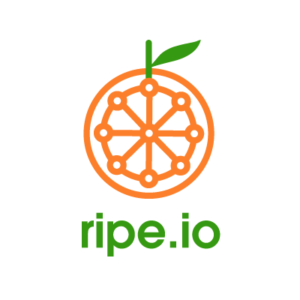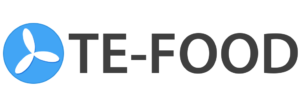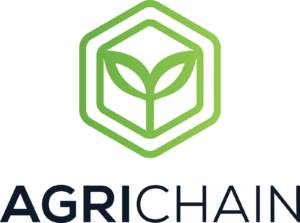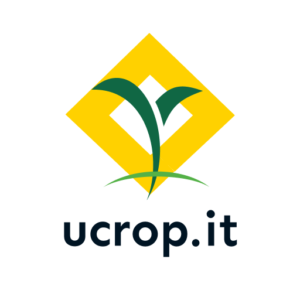Throughout the agri-food value chain, various participants play key roles. Each participant shares critical information about the product, which is stored on their local servers. Unfortunately, this information remains inaccessible to other participants, leading to increased possibilities of food fraud within the system.
Here’s where blockchain steps in to address this issue. It provides a secure environment in which every participant in the blockchain network has access to all the data. Once the data is input and verified, it becomes immutable and cannot be altered after that. For example, if a farmer provides a certificate of organic food, verified by an authorized agency, that certificate cannot be tampered with later on.
In the food industry, blockchain technology is revolutionizing traceability by creating a digital record of a food product’s journey from farm to table. This record includes crucial details like ingredient origins, harvest dates, transportation, and storage conditions. Such information can be easily accessed by customers and stakeholders through smartphone apps or QR codes, offering greater transparency and assurance about the food they consume.
For consumers with high standards, blockchain technology offers unparalleled reliability and confidence in the quality and authenticity of their food. By ensuring that all product information is transparent and unchangeable, Blockchain helps the food industry meet strict consumer demands for trust and integrity.
In this article, we will explore how some disruptive startups are using blockchain to revolutionize the industry.
Ripe.io uses blockchain technology to improve the transparency and traceability of food. It allows consumers to trace the origin of their food and provides reliable information about the product’s journey from farm to table.
They created a digital record of each product and have a mobile app where consumers can access and view information about the product’s origin, environmental impact, and nutritional value. The platform allows producers and suppliers to easily share information with customers and regulators, making it easier for them to guarantee safety regulations and build trust between consumers and producers, leading to a more sustainable food system.
Trusty is an innovative traceability platform that leverages blockchain technology to provide end-to-end transparency in the agrifood industry. The platform enables businesses to track and monitor their food products from farm to fork, ensuring quality, safety, and sustainability.
With a strong focus on the cacao and coffee sectors, Trusty has successfully onboarded clients in Colombia, Ivory Coast, Ethiopia, and Sao Tome, establishing traceability and promoting ethical sourcing practices. Trusty empowers producers, strengthens consumer trust, and fosters sustainable supply chains in the agrifood sector
Following their mission ”You have the right to know what you are eating” TE-FOOD uses blockchain technology to improve traceability and enhance food safety. It has developed a blockchain-based traceability solution that tracks the movement of food products from farm to consumer and stores the information. They allow the monitoring of food making it easier to identify and prevent food fraud and reduce food waste.
The platform has been adopted by more than 6,000 businesses and organizations, tracking over 400,000 transactions daily, it can be used by household farmers, and global brands with different food categories such as meat, eggs, and fresh fruits and vegetables.
Provenance aims to increase transparency and trust in the food supply chain. The company creates a digital record for each food product on the blockchain, which includes information about its origin, production process, and ingredients, making it easily verifiable and accessible to customers.
The platform also offers a certification program for products that meet certain sustainability standards and enables food producers and suppliers to share product information with customers and regulators. Provenance has tracked over 1 million products.
Agrichain aims to improve transparency and efficiency supply chain. It uses blockchain technology to create a digital record of each agricultural product that includes information such as the location of growth, farmers’ information, and farming methods.
The platform also enables real-time tracking and traceability of agricultural products, making it easier to identify and prevent fraud and optimize the supply chain. Agrichain’s solution can be used by various actors in the agricultural industry and it covers a wide variety of products such as grains, fruits, and vegetables.
Ucrop.it offers a digital platform, which is free and confidential, where producers record and verify agronomic events to trace the history of their crops (Crop Story™). The process is very simple and assisted by field agronomists at no cost. All the information entered is under the control of the producer, crypto-verified (using blockchain technology). Each producer owns their crop history, and as such, they decide which companies to share it with in exchange for benefits.
Seafood Souq leverages blockchain technology and a simplified RFQ process to provide access to new sources of wholesale seafood products and ensure reliable traceability. It aims to offer the seafood industry an integrated digital ecosystem for marketing, tracking, and financing seafood products. Additionally, Seafood Souq helps producers, distributors, and retailers meet the regulatory standards of transparency in the seafood supply chain.
To sum up, blockchain technology has the potential to revolutionize the food industry by improving transparency, traceability, and sustainability. By providing consumers with detailed information about the origin, environmental impact, and nutritional value of food, and by making it easier for food producers and suppliers to comply with food safety regulations, blockchain technology can help to build trust between consumers and food producers. With the increasing demand for transparency and sustainability in the food industry, blockchain technology plays a significant role in shaping the future of the food industry.







